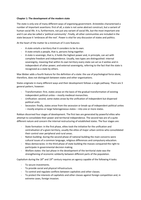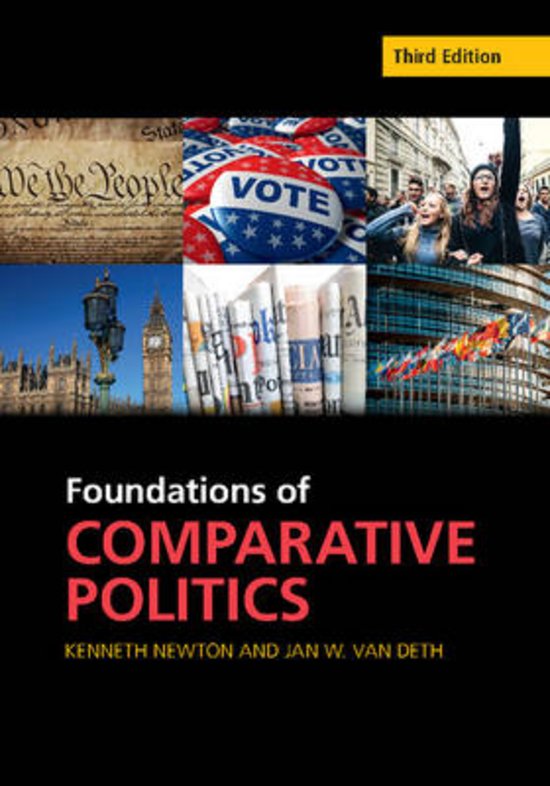Chapter 1: The development of the modern state
The state is only one of many different ways of organising government. Aristoteles characterised a
number of important assertions: first of all, a state is not some abstract construct, but a variant of
human social life. It is, furthermore, not just any variant of social life, but the most important one
and it can also be called a ‘political community’. Finally, all other communities are included in the
state because it ‘embraces all the rest’. Power is vital for any discussion of states and politics.
At the heart of the matter lie a minimum of 3 core features:
- A state entails a territory that it considers to be its own.
- A state entails a people, that is, persons living together.
- A state is sovereign, that is, it holds the highest power and, in principle, can act with
complete freedom and independence. Usually, two types are distinguished: internal
sovereignty, meaning that within its own territory every state can act as it wishes and in
independent of other power; and external sovereignty, referring to the fact that the state is
recognized as a state by others.
Max Weber adds a fourth feature for the definition of a state: the use of psychological force alone,
therefore, does not distinguish between states and other organisations.
States originate in many different ways and their development follows a single pathway. There are 3
general pattern, however:
- Transformation: first, states arose on the basis of the gradual transformation of existing
independent political unites – mostly medieval monarchies.
- Unification: second, some states arose by the unification of independent but dispersed
political units.
- Secession: finally, states arose from the secession or break-up of independent political unites
– mostly empires or large heterogeneous states – into one or more states.
Rokkan discerned four stages of development. The first two are generated by powerful elites who
attempt to consolidate their power and territorial independence. The second two are of a quite
different nature and concern the internal restructuring of established states. The four stages are:
- State formation: in the first phase, elites took the initiative for the unification and
centralisation of a given territory, usually the elites of major urban centres who consolidated
their control over peripheral and rural areas.
- Nation building: during the second phase of national building the main concerns were
cultural issues of a common language, religious differences and compulsory education.
- Mass democracies: in the third phase of state building the masses conquered the right to
participate in governmental decision making.
- Welfare states: the last phase in the development of the territorial state was the
strengthening of economic solidarity between different parts of the population.
Capitalism during the 18th and 19th century requires an agency capable of the following 4 tasks:
- To secure investments.
- To provide social and physical infrastructure.
- To control and regulate conflicts between capitalists and other classes.
- To protect the interests of capitalists and other classes against foreign competition and, in
extreme cases, foreign invasion.





